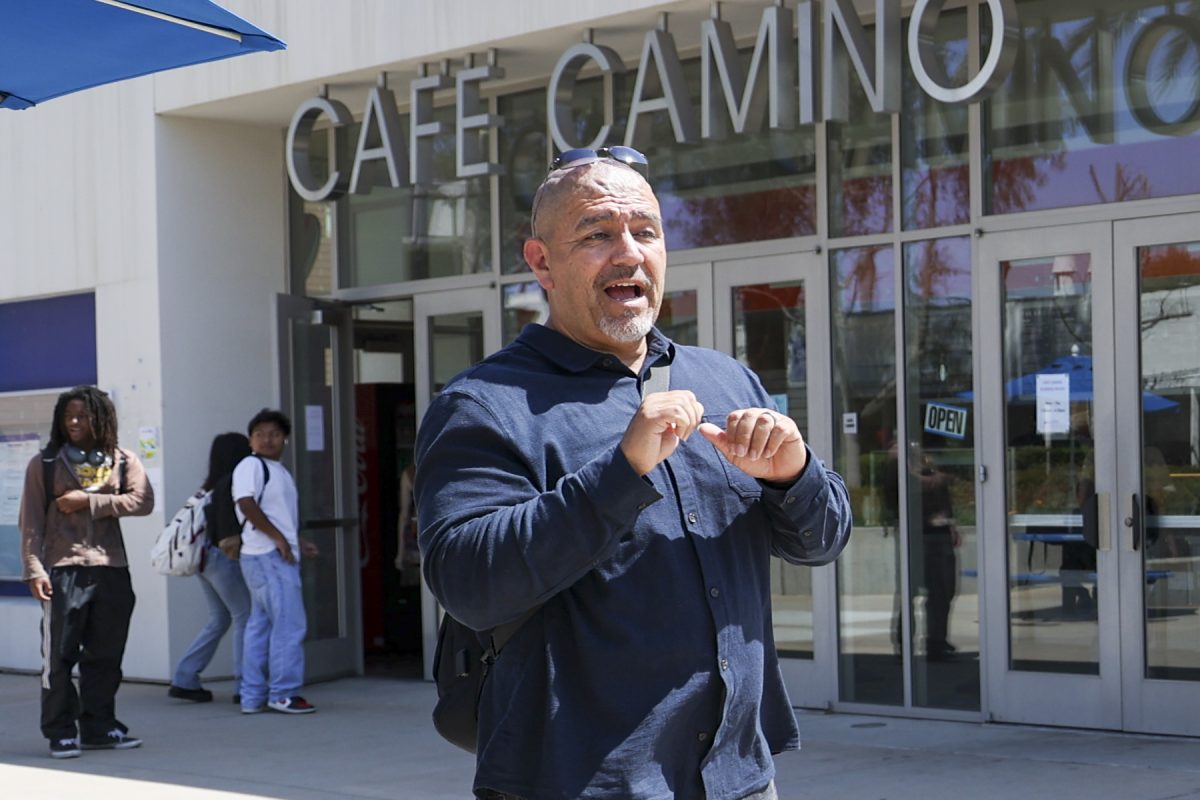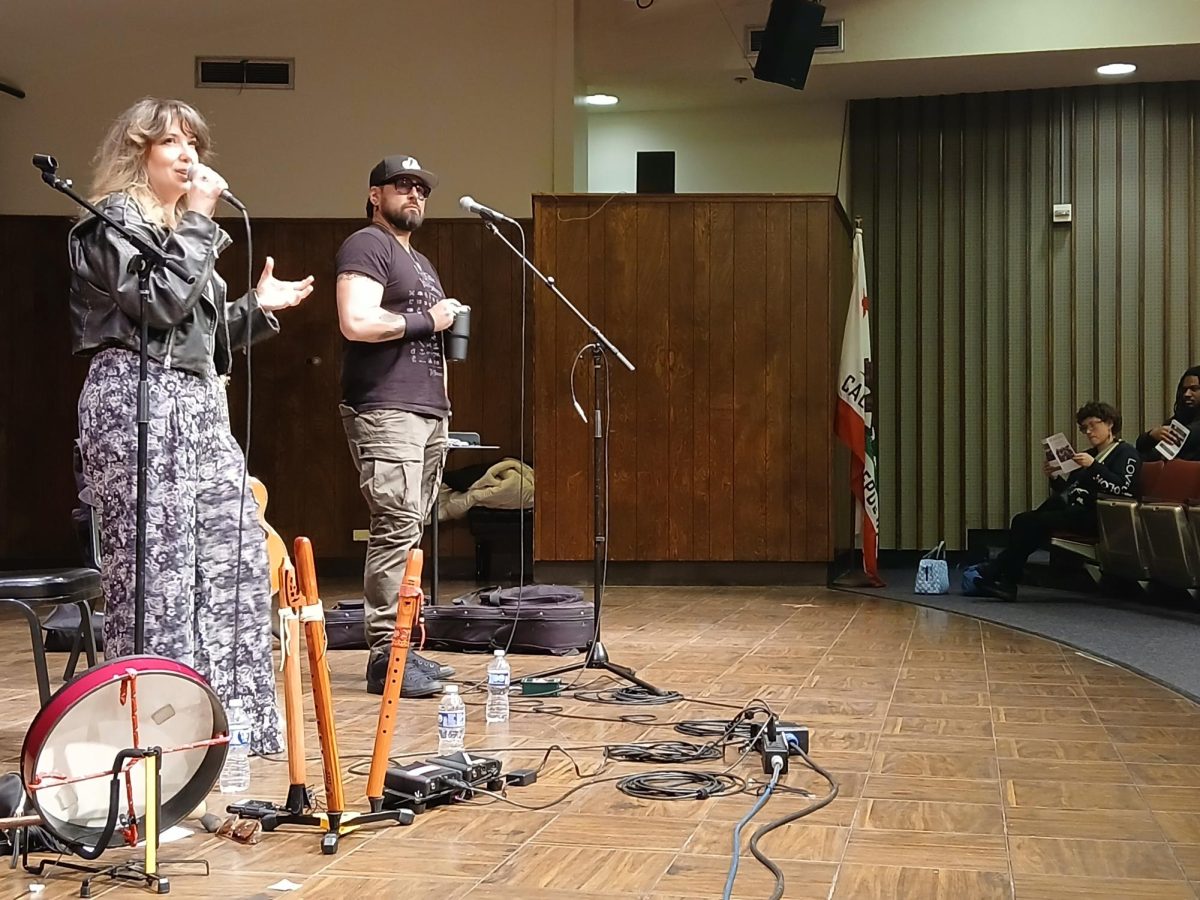In an effort to give rape survivors and sexual assault victims a supportive outlet and better inform individuals about rape, Caitlyn Fitzgerald of the Sexual Assault Crisis Agency presented students and members of the community with information at EC two weeks ago.
SACA was founded in 1972 and is aimed at offering sexual assault victims and rape survivors counseling and support through accompaniment to police stations, court hearings, and medical exams, as well as providing a 24-hour hotline where counseling, information, and referrals can be found.
SACA’s headquarters are located in Long Beach, where it serves 21 cities including Manhattan Beach, Orange County and parts of Los Angeles.
“We go out as counselors and advocates so they know that someone is there for them,” Fitzgerald said. “We don’t ask a lot of questions and we don’t need anything. We’re just here to support him/her.”
Every two and a half minutes someone in America is sexually assaulted, Fitzgerald said.
20 to 25 per cent of women will be raped while in college and 90 per cent of college rape victims know his/her attacker, according to the United States Department of Justice.
Yet, given the rate of occurrence and the number of people who know his/her attacker, rape remains one of the most underreported crimes, leaving only 26 per cent of rape crimes reported to authorities.
A 72-hour window allows victims to press charges against his/her attacker, given enough physical evidence is found. Physical evidence is compromised thereafter.
A charge of rape is only placed upon an individual if the entry of a penis into a vagina without consent.
A lesser charge of sexual assault is given for anal penetration as well as penetration by a foreign object.
“That’s a little messed up,” Fitzgerald said. “If someone assaulted me, whether by anal penetration or a by a foreign object, to me, that would be rape.”
The most common weapon used in rape is not violence; rather it is a widely used drug: alcohol.
According to the U.S Department of Justice, 20 per cent of rape crimes involve any physical injury, while weapons are only used in 30 per cent of rape occurrences.
“When we tell ladies to ‘watch their drinks’ we literally mean, watch the amount of consumption,” Fitzgerald said. “It is also important to be aware of who brings you drinks for there may be ulterior motives.”
Maintaining a safe environment for oneself while on campus can be as simple as not using a cell-phone while commuting about campus. One’s awareness of his/her surroundings is severely compromised as well as the effectiveness of retaliations against a potential attacker.
“I’m not scared when I’m on campus,” Tiffany Cooper, 19, nursing major, said. “I am always aware of my surroundings and I always look around before entering a bathroom.”
Misconceptions loom about as to the profile of a predator and the reasons why one is susceptible to become one.
“Rape is like any other violent crime. It is trying to gain power and control over a person and has very little to do with sex,” Fitzgerald said. “It only uses sexual acts.”
Most rapists come across as charismatic, young, and confident, although most think predators to be older, unattractive and sexually devious in nature, Fitzgerald said.
“People are too trusting sometimes, too polite,” Rachel Lea, 17, psychology major said. “That’s why I don’t smile at every person I see. I try to keep a distance.”
Varying class schedules can leave some without the luxury of having other bodies walk amongst them while leaving campus. This can happen in the morning as well as in the evening.
“I feel safe on campus because I see security around all of the time, even at night,” Veronica Fuentes, 20, English major, said. “One should still walk in populated areas and not be alone in the evening.”
A suggested tip for assertiveness includes the storage of the campus police telephone number in one’s cell-phone, as all 911 calls go directly to Highway Patrol and a more expedient response may be lended calling the campus directly.
“If you’ve been doing anything illegal and become assaulted, police officers and authorities cannot hold those offenses against you,” Fitzgerald said.
No matter what the circumstance, telling someone about an assault is inherent in dealing with the physically and psychologically damaging effects of rape, even if one chooses not to press charges.
For more information about the Sexual Assault Crisis Agency, contact (562)989-0309, or call the 24-hour hotline: (562) 989-5900.
EC’s campus police telephone number is : (310) 660-3100






